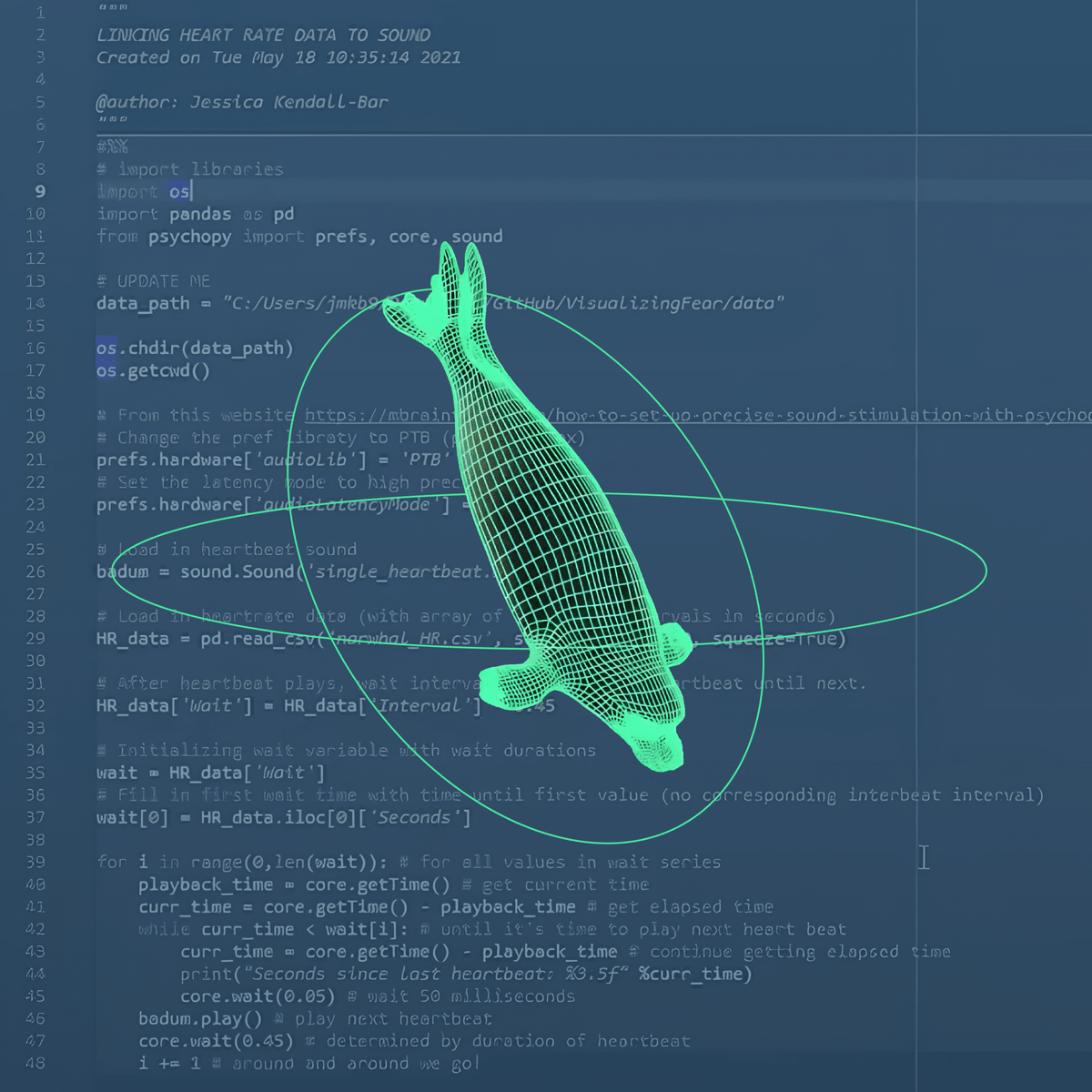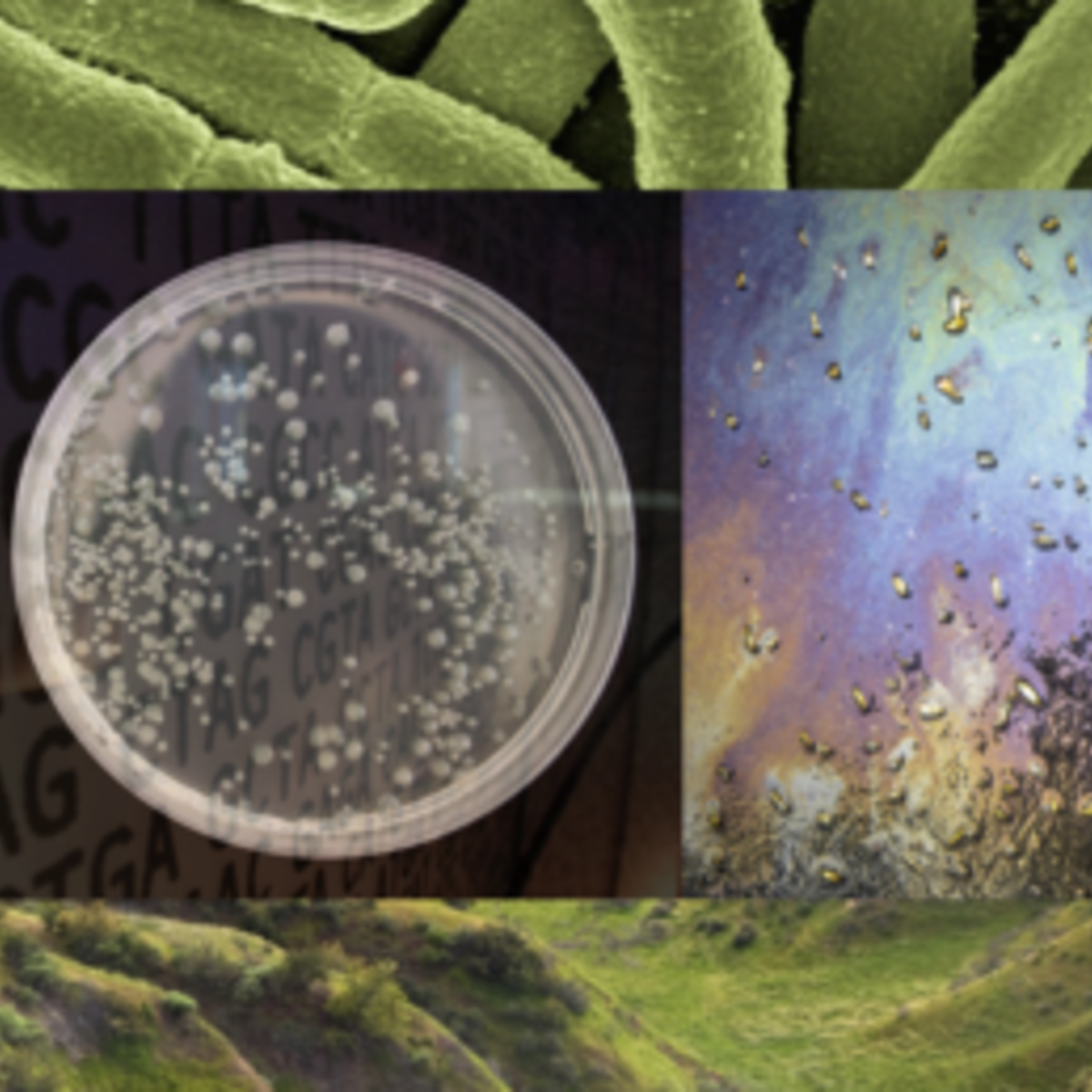Science Journalist
Science Journalist
Science journalism serves as a vital bridge, connecting the complex world of scientific discovery with the public. It involves researching, writing, and communicating scientific topics clearly and accurately to a non-expert audience through various media channels, including newspapers, magazines, websites, television, and radio. The goal is to inform, educate, and engage people about scientific advancements, their implications, and the processes behind them.
Working as a science journalist can be incredibly rewarding. You get to explore fascinating subjects at the forefront of human knowledge, from breakthroughs in medicine and technology to the mysteries of the cosmos and the challenges of climate change. It offers the chance to speak with leading researchers, translate intricate ideas into compelling narratives, and contribute to a more scientifically literate society.
Introduction to Science Journalism
What is Science Journalism?
At its core, science journalism is the practice of gathering, evaluating, and disseminating information about science to the public. It requires a unique blend of journalistic skills – like investigation, interviewing, and writing – with a solid understanding of scientific principles and methods. Science journalists aim to make science accessible and relevant to everyone.
This field plays a critical role in modern society. By explaining scientific findings and their potential impacts, science journalists help citizens make informed decisions about their health, the environment, and technology. They also hold scientists and institutions accountable, fostering transparency and critical discussion around research and its funding.
The work demands curiosity, critical thinking, and excellent communication abilities. It involves not just reporting discoveries but also explaining the context, the uncertainties, and the societal relevance of scientific endeavors, turning complex data and jargon into understandable and engaging stories.
A Brief History and Evolution
The practice of communicating science to a broader audience has roots stretching back centuries, but science journalism as a distinct field emerged more prominently in the 20th century. Early newspapers occasionally covered inventions and discoveries, but dedicated science reporting grew alongside the increasing specialization and societal impact of science itself.
Major events often spurred growth in science journalism. The space race, environmental concerns highlighted by books like Rachel Carson's "Silent Spring," and medical breakthroughs captured public imagination and demanded explanation. Specialized publications like Scientific American and, later, dedicated science sections in major newspapers became more common.
The digital age has dramatically reshaped the field. The internet allows for instant dissemination but also fuels misinformation. Science journalists today must navigate this complex landscape, utilizing multimedia formats and engaging directly with audiences online while upholding rigorous standards of accuracy.
These books delve into the historical context and social dynamics surrounding scientific knowledge.
Key Distinctions from General Journalism
While sharing core journalistic principles like accuracy and ethics, science journalism has unique characteristics. A key distinction lies in the subject matter's complexity and the need for specialized knowledge. Science journalists must grasp not only the findings but also the methodology, statistical significance, and limitations of research.
Verification processes differ too. While general journalists rely on interviews and documents, science journalists often need to interpret peer-reviewed papers, understand scientific consensus, and critically evaluate evidence presented by researchers. They must guard against "false balance" when reporting on topics where scientific consensus is strong, such as climate change.
Ethical considerations can also be more nuanced. Reporting on preliminary findings (like preprints) requires careful contextualization. Explaining risk and uncertainty without causing undue alarm or complacency is a constant challenge, particularly in health and environmental reporting. The potential impact of reporting on public perception and policy necessitates a high degree of responsibility.
Roles and Responsibilities of a Science Journalist
Translating Complexity
A primary task for a science journalist is to make complex scientific concepts accessible without sacrificing accuracy. This involves understanding the core ideas of research and finding clear, engaging ways to explain them to readers or viewers who lack a scientific background.
Effective translation often relies on skillful use of analogies, metaphors, and relatable examples. Strong narrative storytelling can bring scientific endeavors to life, focusing on the human element of discovery or the real-world implications of research. Data visualization is also a crucial tool for presenting complex information understandably.
Science journalists must tailor their communication style to the specific medium and audience. Writing for a daily newspaper differs significantly from producing a long-form feature for a magazine, crafting a script for a documentary, or creating content for a science blog or podcast. Versatility is key.
These courses focus on the essential skill of communicating science effectively to various audiences.
Ethical Reporting on Controversial Science
Science often intersects with controversial social, ethical, or political issues. Topics like climate change, vaccine safety, genetic engineering, and artificial intelligence require careful and responsible reporting. Science journalists must navigate these contentious areas with objectivity and a commitment to evidence.
This involves presenting scientific consensus accurately, even when it contradicts vocal minority opinions or political agendas. It requires avoiding "false balance" – giving equal weight to scientifically unsupported claims alongside well-established evidence. Journalists must investigate potential biases, including funding sources for research or advocacy groups.
Ethical reporting means providing context, acknowledging uncertainties where they exist, and explaining the basis for scientific conclusions. It's about informing the public debate with accurate information, enabling reasoned discussion rather than fueling polarization or fear based on misinformation.
These courses explore the challenges and best practices for communicating science responsibly, especially in the face of misinformation.
Collaboration and Sourcing
Science journalists work closely with scientists and researchers. Building trusting relationships is important for gaining access to information and insights. This involves conducting effective interviews, understanding the nuances of scientific language, and respecting protocols like publication embargoes.
They also collaborate extensively with editors, who help shape stories, ensure clarity and accuracy, and align content with the publication's standards and audience. This process involves pitching ideas, refining drafts, and rigorous fact-checking before publication.
Finding reliable sources is paramount. Science journalists draw information from peer-reviewed journals, scientific conferences, university press releases, government reports, and direct interviews with experts. Critically evaluating the credibility of sources and corroborating information are essential daily practices.
Formal Education Pathways
Undergraduate Foundations
There isn't one single prescribed path to becoming a science journalist. Many successful professionals start with an undergraduate degree in journalism, communications, or English, later developing scientific expertise through experience or further study. Strong writing and reporting skills are fundamental.
Alternatively, pursuing a degree in a scientific field – such as biology, chemistry, physics, or environmental science – provides deep subject matter knowledge. Individuals on this path then need to cultivate journalism skills, perhaps through coursework, workshops, internships, or student publications.
Combining these fields through a double major or a major/minor combination can be highly effective. Regardless of the primary degree, coursework in statistics, research methods, and ethics is beneficial for understanding and critically evaluating scientific information.
Building a solid scientific foundation can be achieved through focused courses, even alongside a journalism or communication degree.
Specialized Graduate Programs
For those seeking dedicated training, numerous universities offer Master's degrees or graduate certificates specifically in science journalism or the broader field of science communication. These programs provide specialized instruction in reporting on science, health, environment, and technology.
Graduate programs typically offer advanced coursework in science writing, multimedia storytelling, media ethics related to science, and potentially specialized scientific topics. They provide valuable opportunities for mentorship, networking with professionals, and building a strong portfolio through structured assignments and projects.
Admission to these programs is often competitive, requiring strong academic records, writing samples, and demonstrated interest in science communication. Researching different programs is important to find one that aligns with your career goals and interests.
Dual-Degree and Interdisciplinary Options
Some institutions offer dual-degree programs that formally combine a graduate degree in a scientific discipline (like a Master's or PhD) with a degree or certificate in journalism or communication. These intensive programs cater to individuals seeking deep expertise in both science and reporting.
Such interdisciplinary approaches are particularly valuable for those aiming to specialize in complex scientific beats or pursue in-depth investigative science journalism. They equip graduates with both research-level understanding and professional communication skills.
Furthermore, many individuals transition into science journalism after completing graduate studies or even working as researchers in academia or industry. Their scientific background becomes a significant asset, provided they actively develop the necessary journalistic skills.
Online and Independent Learning
Key Skills for Self-Learners
For those pursuing science journalism outside traditional academic pathways, prioritizing key skills is crucial. Foundational scientific literacy is non-negotiable; this means understanding the scientific method, basic statistics, how to read and interpret research papers, and the nature of scientific evidence.
Exceptional writing and communication skills form the bedrock of the profession. Focus on developing clarity, accuracy, and engaging narrative style. Practice adapting your writing for different formats – news articles, feature stories, blog posts, scripts – and different audiences.
Essential practical skills include effective interviewing techniques, thorough research methods (including online database searches), and rigorous fact-checking. Online platforms like OpenCourser offer a vast array of courses to build these specific competencies flexibly and affordably.
Online learning offers flexible pathways to acquire the diverse skills needed for science journalism, from core scientific principles to communication strategies.
Building a Portfolio Independently
Regardless of educational background, a strong portfolio is essential for landing jobs or freelance assignments in science journalism. This collection of your best work demonstrates your writing ability, reporting skills, and understanding of science.
Start building your portfolio early. Write for student newspapers or magazines, launch your own science blog, contribute articles to community science websites, or volunteer to write for non-profit organizations. Cover local science events, profile researchers at nearby institutions, or explain scientific concepts relevant to your community.
For those pivoting from other careers, especially scientific ones, this step is critical. Your existing expertise is a major advantage, but you must demonstrate you can communicate effectively to a general audience. It takes effort and persistence, but showcasing tangible work is the most convincing way to prove your capabilities.
Certifications vs. Experience
While certificates from online courses or specialized workshops can demonstrate initiative and specific skill acquisition, they generally don't replace practical experience and a compelling portfolio in the eyes of employers or editors. Certificates can supplement your profile but are rarely a primary hiring criterion.
Focus on gaining real-world experience and producing high-quality published work (even on personal blogs or smaller platforms initially). Experiential learning – pitching stories, working with editors, navigating the reporting process – builds practical skills and credibility more effectively than certificates alone.
Think of certifications as tools to acquire specific skills (like data visualization or podcasting) that enhance your overall package. The ultimate goal is to build a portfolio that speaks for itself, showcasing your ability to produce accurate, engaging science journalism.
Books offer invaluable guidance on writing craft and the philosophical underpinnings of science, complementing hands-on experience.
Career Progression in Science Journalism
Entry-Level Roles
Beginning a career in science journalism often involves roles like editorial assistant, fact-checker, or junior staff writer at news outlets, magazines, or specialized science publications (print or online). Opportunities may also exist in communications departments of universities, research institutes, or museums.
Typical responsibilities at this stage include assisting senior journalists with research, conducting preliminary interviews, writing short news briefs or summaries, managing social media accounts, or verifying the accuracy of articles before publication. These roles provide essential grounding in the field.
Internships are highly valuable for gaining initial experience and making professional connections. Competition for entry-level positions can be stiff, so a strong portfolio and demonstrable passion for science communication are important differentiators.
Mid-Career Opportunities
With experience, science journalists can progress to roles with more responsibility and autonomy. This might include becoming a feature writer, producing longer, more in-depth articles, or specializing as a beat reporter covering specific areas like health, environment, energy, or technology.
Investigative reporting, focusing on science policy, research ethics, or the influence of industry on science, offers another path for experienced journalists. Editing roles, involving shaping content, managing writers, and ensuring accuracy and quality, are also common mid-career transitions.
Many science journalists build successful careers as freelancers, pitching stories to various publications. This requires strong self-discipline, networking skills, and often, expertise in a particular scientific niche that makes their reporting valuable to editors.
These careers represent common pathways and roles within or related to science journalism.
Leadership and Senior Paths
Senior roles in science journalism include positions like senior editor, managing editor, or editor-in-chief, overseeing the science coverage or entire publication. These roles involve strategic decision-making, team management, and setting the editorial direction.
Experienced science journalists may also move into leadership positions in science communication outside traditional media. Universities, government agencies, large non-profits, and museums often employ directors of science communication to manage their public outreach and media relations.
The skills developed in science journalism are transferable. Some professionals pivot into related fields such as technical writing, creating documentation for complex products, or working in science policy analysis, advising government or organizations on science-related issues.
Challenges Facing Science Journalists
Navigating Misinformation and Skepticism
One of the most significant challenges today is reporting on science in an era marked by widespread misinformation, disinformation, and public skepticism towards scientific institutions. Science journalists are often on the front lines, countering inaccuracies while upholding journalistic integrity.
This requires not only accurately reporting scientific findings but also explaining the scientific process, acknowledging uncertainty appropriately, and contextualizing information. Journalists must be adept at debunking myths without inadvertently amplifying them and transparent about their sources and methods.
Building trust with the audience is crucial. This involves demonstrating rigor, fairness, and a commitment to evidence-based reporting. Strong fact-checking skills and an understanding of how misinformation spreads online are essential tools in this environment.
Understanding how to communicate trustworthy information effectively is a core challenge in the modern media landscape.
Economic Pressures and Funding Models
The traditional business model for journalism has faced significant disruption, impacting science journalism along with other specialized beats. Budget cuts at media organizations have led to fewer staff positions for science reporters and reduced resources for in-depth reporting.
This economic pressure forces many science journalists into freelancing, which offers flexibility but often lacks financial stability and benefits. Alternative funding models are emerging, including non-profit journalism outlets supported by grants and donations, subscription-based platforms, and crowdfunding.
Navigating this landscape requires resilience and sometimes entrepreneurial skills. According to organizations tracking the field, while challenges persist, there's also recognition of the need for quality science reporting, leading to new opportunities in niche publications and grant-funded projects. Finding sustainable models remains an ongoing challenge for the industry.
Adapting to New Media Formats
The media landscape is constantly evolving. Science journalists must adapt to the demand for content across multiple platforms, moving beyond traditional print articles. Proficiency in digital and multimedia storytelling is becoming increasingly important.
This includes creating engaging content for websites, utilizing social media effectively for dissemination and audience interaction, producing audio stories or podcasts, and incorporating video and interactive data visualizations into reporting. The ability to present complex information in visually appealing and easily digestible formats is highly valued.
This requires continuous learning and versatility. Journalists need to be comfortable experimenting with new tools and platforms to reach audiences where they are and communicate scientific information in compelling ways.
Courses that integrate data visualization and narrative techniques are beneficial for adapting to multimedia demands.
Science Journalist's Toolkit
Essential Software and Digital Tools
Modern science journalists rely on a range of digital tools. Proficiency with Content Management Systems (CMS) like WordPress is often necessary for publishing online. Familiarity with basic photo editing and video editing software is also increasingly expected.
Data visualization tools such as Tableau, Flourish, or Datawrapper help transform complex datasets into understandable graphics. For managing research, reference management software like Zotero or Mendeley can be invaluable for organizing papers and citations.
Audio recording and editing tools are essential for interviews and podcasting. Secure communication tools may be needed when dealing with sensitive information or sources. Staying updated on relevant software enhances efficiency and storytelling capabilities.
Interviewing Scientists Effectively
Interviewing scientists requires specific techniques. Thorough preparation is key: read their relevant papers, understand their field, and prepare thoughtful, specific questions. Avoid overly simplistic questions, but don't be afraid to ask for clarification on technical points.
During the interview, practice active listening. Let the scientist explain their work in detail, and probe deeper into interesting or unclear areas. Build rapport to foster a comfortable environment for open discussion. Always record interviews (with permission) for accuracy and transcribe them carefully.
Be prepared to translate jargon in your notes and subsequent writing. Confirm the accuracy of technical details and complex concepts before publishing. Respecting the scientist's expertise while maintaining journalistic independence is crucial.
Fact-Checking and Understanding Peer Review
Rigorous fact-checking is non-negotiable in science journalism. This involves verifying every factual claim, statistic, name, and affiliation in an article. It often means going back to primary sources, cross-referencing information, and sometimes contacting original researchers or independent experts.
Understanding the scientific peer-review process is fundamental. Journalists need to know that peer review is a system of quality control, but it doesn't guarantee absolute truth; it signifies that a study has met certain standards of methodology and interpretation within its field. Knowing a study's peer-review status helps gauge its credibility.
Distinguishing between peer-reviewed publications, conference presentations, and preprints (studies not yet peer-reviewed) is vital. Reporting on preliminary findings requires clear labeling and contextualization about their provisional nature.
A strong grasp of scientific literacy and the philosophy behind scientific inquiry underpins effective fact-checking and interpretation.
Ethical Considerations in Science Journalism
Avoiding Hype and Sensationalism
A significant ethical challenge is resisting the temptation to sensationalize scientific findings, particularly in health and medical reporting. Preliminary results, studies with small sample sizes, or research conducted on animals are sometimes presented with misleading headlines that overstate their significance or immediate applicability to humans.
Responsible science journalism requires accurately representing the scope and limitations of research. This includes clearly stating uncertainties, explaining the difference between correlation and causation, and providing context about where a finding fits within the broader scientific landscape.
Journalists must strive for accuracy over clickbait, ensuring that headlines and article introductions faithfully reflect the nuances of the science being reported. This maintains public trust and avoids generating false hope or unnecessary fear.
Courses focusing on research ethics and the societal implications of science help journalists navigate these complexities.
Transparency and Conflicts of Interest
Transparency is crucial for credibility. Science journalists should be open about their reporting processes and strive to disclose potential conflicts of interest, both for their sources and, where relevant, for themselves or their publication. This includes reporting the funding sources for research studies whenever possible.
Decisions about granting anonymity to sources must be carefully considered and justified, typically reserved for situations where a source faces significant risk for speaking out. The rationale should be explained to editors and, if possible, alluded to for readers.
Ethical practice also demands correcting errors promptly and transparently. Acknowledging mistakes and providing corrected information helps maintain trust and demonstrates a commitment to accuracy.
Understanding the interplay between science, funding, and societal impact is explored in these texts.
Handling Preprints and Preliminary Data
The rise of preprint servers (archives where researchers can post studies before formal peer review) presents both opportunities and challenges. Preprints accelerate the dissemination of findings but lack the vetting provided by peer review.
Reporting on preprints requires extreme caution. Journalists must clearly state that the findings are preliminary and have not been peer-reviewed. Seeking comments from independent experts not involved in the study is crucial for context and critical assessment.
It's important to avoid presenting preprint findings with the same weight as peer-reviewed research. Explain the limitations and the possibility that the conclusions might change following peer review. Responsible handling of preliminary data is key to avoiding the spread of potentially unreliable information.
Global Opportunities for Science Journalists
Regional Demand and Focus Areas
The demand for science journalists can vary geographically, influenced by regional research strengths, public interest, and media landscapes. For instance, regions with strong biotechnology sectors might have more opportunities for health and medical reporters, while areas facing significant environmental challenges may prioritize climate and conservation journalism.
Emerging economies with rapidly growing research and development sectors may present new opportunities, though the media infrastructure for specialized reporting might still be developing. International organizations focusing on global health, development, or environmental issues also employ science communicators.
Researching specific regional media markets and scientific priorities can reveal niche opportunities. Organizations like the World Federation of Science Journalists can offer insights into the global landscape, connecting journalists across borders.
Freelancing for International Outlets
The interconnected nature of science and the global reach of digital media make freelancing for international publications a viable option for many science journalists. Reporting on scientific breakthroughs or environmental issues often has relevance beyond national borders.
Successfully pitching to international editors requires understanding their publication's focus, audience, and style. Stories with a clear international angle or those highlighting globally significant research are more likely to be accepted. Networking internationally, perhaps through professional organizations or conferences, can help build connections.
Freelancing internationally involves practical challenges, such as navigating different time zones, handling payments across currencies, and potentially dealing with language barriers during reporting. However, it offers the chance to reach wider audiences and cover diverse global science stories.
Covering Global Science Stories
Many of the most pressing issues facing humanity are inherently scientific and global in scope. Pandemics, climate change, biodiversity loss, food security, and space exploration require reporting that transcends national boundaries.
Science journalists play a critical role in explaining these complex global challenges, reporting on international research collaborations, and covering policy responses from different nations. This often requires understanding diverse cultural contexts and collaborating with journalists or sources in other countries.
Covering global science offers the opportunity to produce highly impactful journalism that informs international understanding and cooperation on critical issues. It requires a broad perspective and the ability to connect local events to global scientific trends.
These books tackle global scientific challenges, offering rich material for journalists covering international stories.
Exploring foundational concepts in relevant fields like space or environmental science can aid in covering global topics.
Frequently Asked Questions (FAQs)
Is a science degree mandatory?
No, a formal science degree is not an absolute requirement, but a strong understanding of scientific principles and methods is essential. Many successful science journalists hold degrees in journalism, English, or other humanities fields and developed their science expertise through dedicated learning and experience.
Conversely, many come from scientific backgrounds (holding Bachelor's, Master's, or even PhD degrees) and transition by honing their writing and reporting skills. Both pathways are viable, but bridging the gap between science and communication is necessary regardless of your starting point.
What truly matters is the ability to understand complex science, critically evaluate evidence, and communicate it clearly and accurately to a non-expert audience. Demonstrating this ability through a strong portfolio is often more important than the specific degree listed on your resume.
How does pay compare to general journalism?
Salaries for science journalists vary widely based on experience, location, type of employer (e.g., major newspaper, niche website, non-profit, freelance), and specialization. Generally, pay can be comparable to or sometimes slightly higher than general journalism roles, especially for those with deep expertise in high-demand fields like health or technology.
However, like much of the journalism industry, entry-level salaries may be modest. Data from the U.S. Bureau of Labor Statistics for 'Writers and Authors' or 'Technical Writers' (which sometimes includes science writers) can provide general benchmarks, but specialized science journalism roles might not fit neatly into these categories.
Freelance rates also vary significantly. Established freelancers with strong reputations and niche expertise can command higher rates, but income stability can be a challenge. Overall, while potentially rewarding, science journalism is not typically chosen for high earning potential alone.
Can AI tools replace science journalists?
Artificial intelligence tools are increasingly capable of tasks like summarizing research papers, analyzing data, and even drafting basic text. However, it's unlikely that AI will fully replace human science journalists in the foreseeable future.
AI currently lacks the critical thinking, ethical judgment, contextual understanding, and nuanced storytelling abilities that define quality journalism. Skills like conducting probing interviews, identifying bias, building narratives, and making complex ethical decisions remain human domains.
AI is more likely to become a powerful tool that assists science journalists, automating routine tasks like transcription or data gathering, freeing up humans to focus on deeper investigation, analysis, and creative storytelling. Journalists will need to learn how to leverage these tools effectively.
Understanding the capabilities and limitations of AI is becoming increasingly relevant across many fields.
How can I transition from academia to science journalism?
Transitioning from a research background in academia is a common pathway. Your deep scientific knowledge is a significant asset. The key is to develop and demonstrate strong communication skills for a non-expert audience.
Start by building a writing portfolio. Create a blog explaining scientific concepts, write summaries of research for lay audiences, pitch freelance articles to science sections or websites, or volunteer your writing skills for science outreach initiatives. Practice translating complex ideas into clear, engaging language.
Network with journalists and editors. Attend science communication workshops or conferences. Consider short courses in journalism or writing available through platforms like OpenCourser. Be prepared for a potential shift in work culture and possibly a lower starting salary, but recognize that your scientific expertise is highly valuable in this field.
What are key metrics for career success?
Success in science journalism is subjective and depends on individual goals. For some, it might mean breaking major stories, winning prestigious awards (like the Pulitzer Prize for science reporting), or influencing public policy through impactful investigations.
For others, success might be defined by building a reputation as a trusted expert in a specific scientific beat, cultivating a large and engaged audience for their work, or achieving financial stability and creative satisfaction through freelancing.
Common indicators often include the quality and impact of published work in a strong portfolio, recognition from peers and editors, the ability to consistently produce accurate and engaging content, and making a tangible contribution to public understanding of science.
How has social media impacted the field?
Social media has profoundly impacted science journalism. It serves as a powerful channel for disseminating articles and reaching wider audiences. Journalists use platforms like Twitter or LinkedIn to follow research developments, find sources, engage with scientists and the public, and build their professional presence.
However, social media also presents challenges. The rapid pace can create pressure for instant reporting, sometimes at the expense of thorough verification. It's a major conduit for the spread of scientific misinformation, requiring journalists to be vigilant and skilled in debunking false claims.
Effectively using social media requires specific skills: crafting engaging posts, understanding platform algorithms, verifying information found online, and managing interactions (including potential online harassment). It has become an integral, though complex, part of the modern science journalist's toolkit.
Useful Resources
Exploring resources and communities can be very helpful for aspiring and practicing science journalists. Here are a few starting points:
- Professional Organizations: Groups like the National Association of Science Writers (NASW) and the World Federation of Science Journalists (WFSJ) offer resources, job boards, networking opportunities, and ethical guidelines.
- Reputable Science Publications: Reading high-quality science journalism is essential. Follow publications like Scientific American, Nature News, Science News, WIRED, National Geographic, and the science sections of major newspapers.
- Online Learning Platforms: Websites like OpenCourser aggregate courses on Science, Communication Studies, and Writing, allowing you to find specific skill-building opportunities.
- OpenCourser Learner's Guide: For tips on maximizing online learning and structuring your self-study, explore the resources available in the OpenCourser Learner's Guide.
Embarking on a career as a science journalist is a challenging yet deeply fulfilling endeavor. It demands persistent curiosity, a rigorous commitment to accuracy, and a passion for making the complexities of science understandable and relevant to society. If you possess these qualities and are driven to bridge the gap between the lab and the public, this dynamic field offers a unique opportunity to contribute to informed public discourse and explore the frontiers of human knowledge.



















